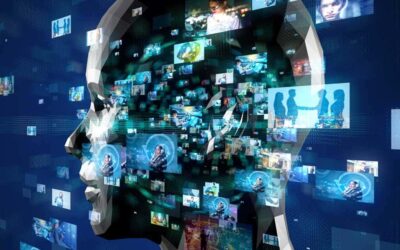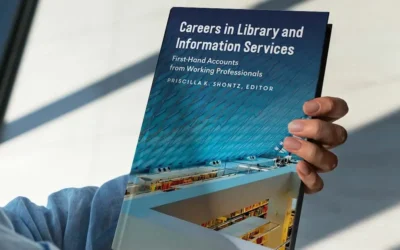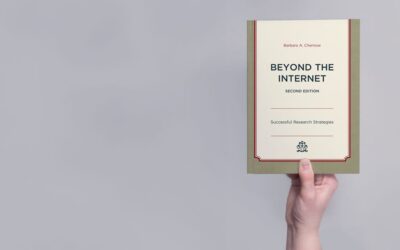The Value of Lifelong Learning and Reflective Practice in Special Libraries
Lauren Hays
One of the Enabling Competencies identified by the Special Libraries Association is lifelong learning. In busy jobs, taking time to stop and learn something new is not always the easiest thing to do. As I’ve worked to balance professional development with immediate needs, I started to incorporate the practice of being a reflective practitioner.
Engaging in reflection has helped me identify specific areas where I need professional development as well as helped me improve services.
In his 1910 book How We Think, philosopher and educational reformer John Dewey wrote about reflective practice as being “the active, persistent and careful consideration of any belief or supposed form of knowledge in the light of the grounds that support it” (p. 6). In addition to professional development, for me, taking time to reflect makes my work better, because it allows me to refine events, improve processes, enhance services, and better support stakeholders.
A Reflective Model
Various reflective models exist, but the one I have found easiest to use is by Rolfe, Freshwater, and Jasper (2001). Their model focuses on three questions:
- What?
- So what?
- Now what?
The first category in Rolfe, Freshwater, and Jasper’s framework is What?
When you are starting to reflect on an event, a service, or a resource, you need to define the what. It is essential to include details in your responses and not stay at the surface level. In our libraries, these questions can serve as a guide for reflection by asking ourselves some of the following questions:
- What happened? What did I observe?
- What was my role in the library event?
- What population was I supporting?
- What service/resource was I providing?
- What went well?
- What did not go well?
- Why does the library provide this resource/service/support?
Once you have determined the what, it is time to think about what that means. Why do we care what happened? Or as Rolfe, Freshwater, and Jasper say, it is time to ask so what? As with the first category, in libraries, these questions can serve as a guide for reflection by asking ourselves some of the following questions:
- What was going through my mind as I provided this support?
- Did I learn anything myself? If so, what?
- What did I base my decisions on?
- What other knowledge can I bring to this event in the future?
- What is my new understanding?
- What broader issues did I realize from this situation?
- Has my view of the population changed? If so, how?
Once you have reflected on what happened and what the findings mean and why they matter, it is time to take action or to ask yourself, now what? This is where professional development and lifelong learning become relevant. Ask yourself:
- How can I apply what I learned the next time I offer this support or other support?
- What would I like to learn more about?
- What information can I share with other library staff?
- If I were to provide this service/resource again, what would I do differently?
- What do I need to learn for the future?
- Where can I go to learn what I need to?
I recommend using reflective practice to hone in on professional development needs, assess lifelong learning opportunities, and address immediate needs. It is a practice that can be incorporated without a lot of time. Benefits of the practice can also be immediately apparent.
Recommended Resources
Greenall, J., & Sen, B. A. (2016). Reflective practice in the library and information sector. Journal of Librarianship and Information Science, 48(2), 137-150.
References
Dewey, J. (1910). How we think. Mineola, NY: Dover Publications.
Rolfe, G., Freshwater, D., & Jasper, M. (2001). Critical reflection in nursing and the helping professions: A user’s guide. Basingstoke: Palgrave Macmillan.
Lauren Hays
Lauren Hays, PhD, is an Assistant Professor of Instructional Technology at the University of Central Missouri. Previously, she worked as an Instructional and Research Librarian at a private college in the Kansas City metro-area. Please learn more about Lauren and read her other posts about skills for special librarians; then take a look at Lucidea’s powerful ILS, SydneyEnterprise, used daily by innovative special librarians.
Similar Posts
AI and the Transformation of Information Literacy
Due to the rise of artificial intelligence (AI), information professionals must evolve their teaching and training approaches as technology reshapes the information landscape, because AI has transformed what it means to be information literate.
4 Ways to Promote Sustainability in Special Libraries
The path to sustainability in special libraries combines technological advancement, waste reduction, collection digitization, and community education.
Interview with Technical Services Librarian Becky Givens
Becky Givens is a Technical Services Librarian featured in the book Careers in Library and Information Services, which includes a section on careers in special libraries where librarians describe the work they do in various settings. My interview with Becky is below.
Interview with the Author: Dr. B. Chernow on Going Beyond the Internet
Special librarians know searching the Internet answers specific questions, but you miss or misinterpret information if you only consult the Internet.




Leave a Comment
Comments are reviewed and must adhere to our comments policy.
0 Comments